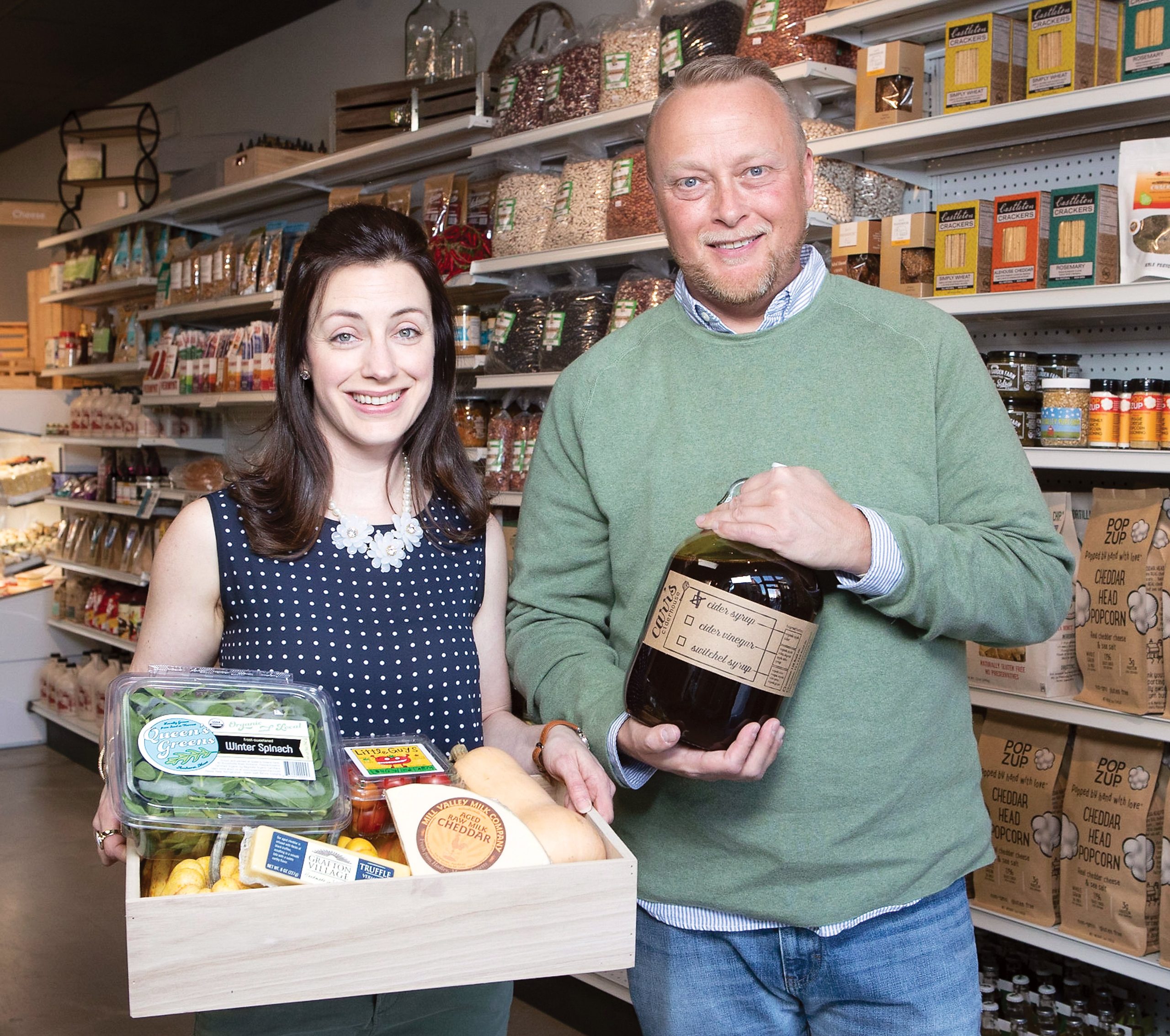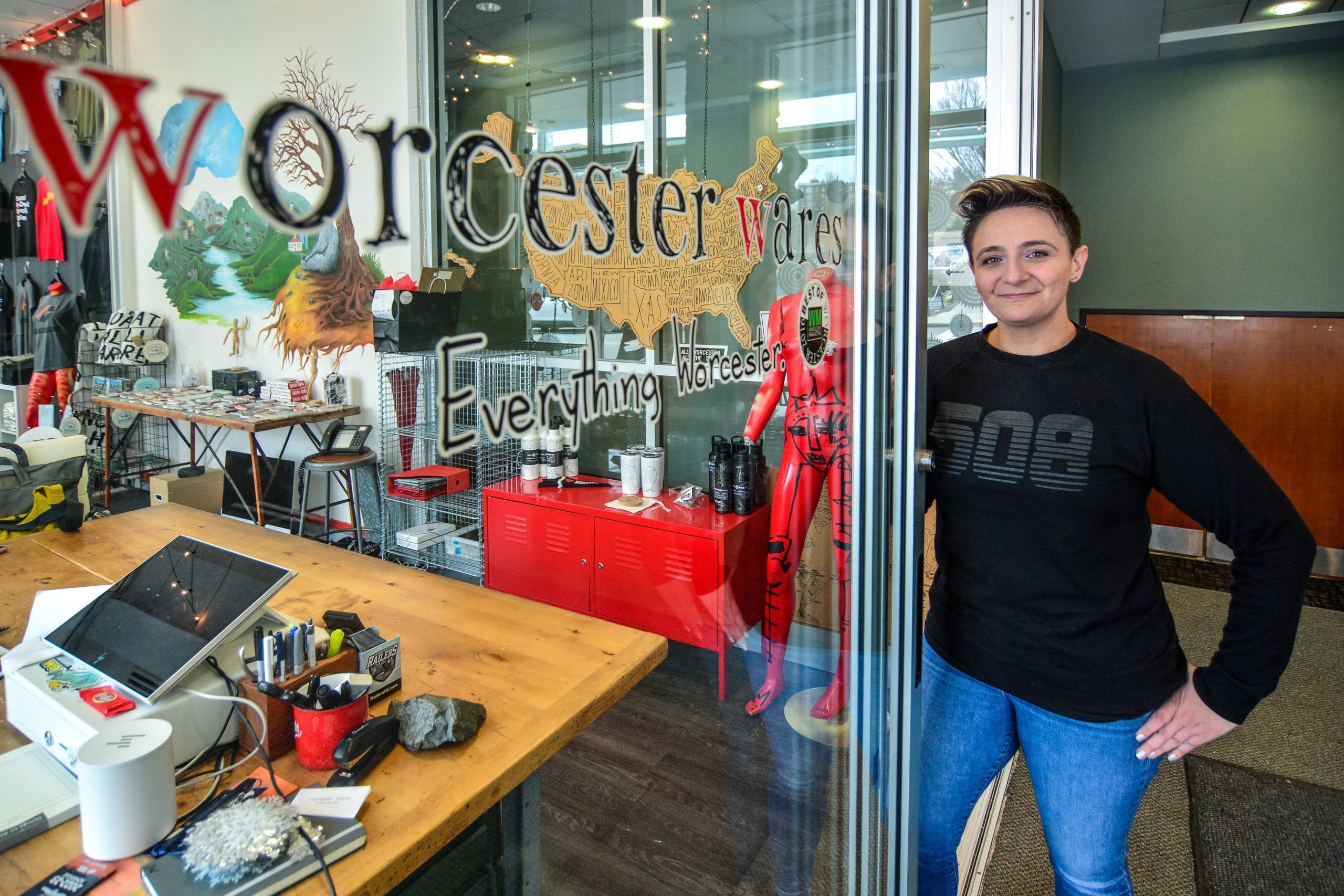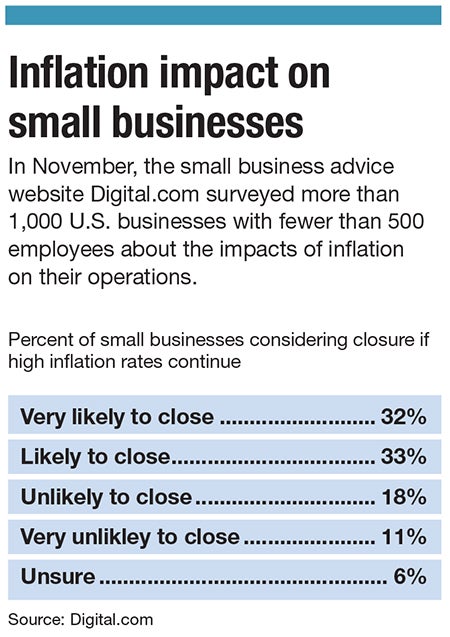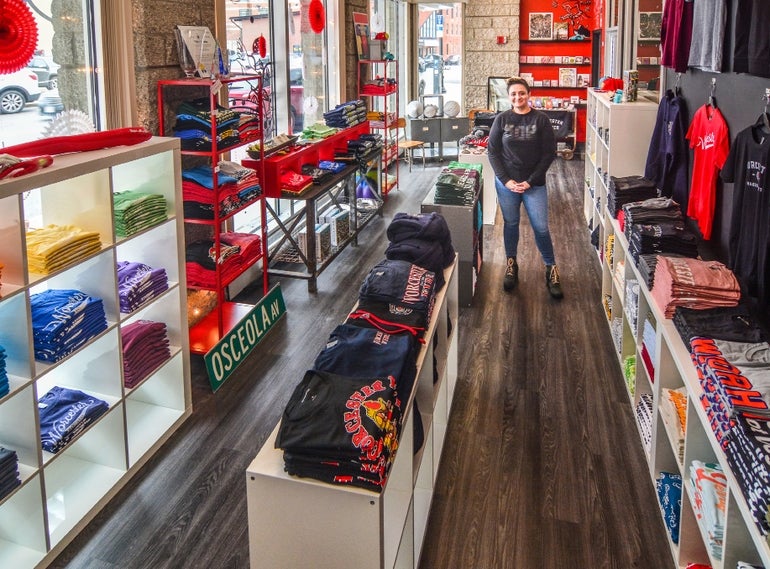After surviving 2020, Worcester retailers are closing their business or reducing operations in the face of mounting problems in 2023.
Get Instant Access to This Article
Subscribe to Worcester Business Journal and get immediate access to all of our subscriber-only content and much more.
- Critical Central Massachusetts business news updated daily.
- Immediate access to all subscriber-only content on our website.
- Bi-weekly print or digital editions of our award-winning publication.
- Special bonus issues like the WBJ Book of Lists.
- Exclusive ticket prize draws for our in-person events.
Click here to purchase a paywall bypass link for this article.
The struggles for small business owners everywhere over the past few years are not letting up in Worcester. For retailers in the city, changing consumer attitudes, economic conditions, and a challenging landscape have made for a hostile environment not suited to growth or success.
During COVID-19, consumers were attuned to the issues plaguing small business owners, who often had to completely close for months, pivot to online operations, or starkly reduce capacity. Emerging from the pandemic, however, business owners are dealing with challenges posing more serious threats to keeping their doors open and lights on than the most challenging days of 2020.
“Business is increasingly more difficult now than it was during the pandemic,” said Lynn Cheney, owner of Maker to Main, a downtown Worcester specialty and local grocer.

Cheney is far from alone in this assessment. A smaller portion of retailers in the state closed during the pandemic than the Retailers Association of Massachusetts predicted, said Jon Hurst, president of the association. Estimates were that a third of its 4,000 member retailers would not make it through 2020, Hurst said, but it was less than 10%. This does not paint the full picture of the landscape for retailers.
“It’s been one thing after another for three years,” he said.
For Jessica Walsh, owner of the Worcester Wares gift shop, one thing after another has caused her to pull back on her operations. Walsh opened her first location at the DCU Center in 2015 and later launched a second location at the Worcester Public Market in early 2020, right before she was forced to shutter in-store shopping during the pandemic. On March 19, Walsh will close the Kelley Square location at the public market and return to operating solely out of the DCU Center to cut back on costs and improve her margins.
It was a difficult decision for Walsh, who had the first business to open in the Worcester Public Market.
“Businesses there have heart,” she said, “but I can’t continue the gamble.”
Worcester Wares adjusted during COVID, but an increasingly clear picture of the landscape appeared to Walsh in early 2023.

“You get through the pandemic. You take out the loans. You adjust to a new reality. You go back to normal, and you start to see how different everything is,” she said. “I realized the adjustments weren’t temporary. You can't go back to the way things were before.”
Rising costs, decreasing margins
Despite rising inflation, U.S. consumer spending remained high throughout most of the last two years before dropping in November and December, according to data from the U.S. Department of Commerce. Falling consumer spending, which comprises about two-thirds of the American economy, creates problems for small retailers.
However, low unemployment rates remain a strong point for the economy. Both the statewide rate and the Greater Worcester rate were at 3.3% in December, both near all-time lows, according to data from the U.S. Bureau of Labor Statistics.
Despite consumer spending remaining high until recently and unemployment being low, the costs of operations for small businesses have increased across the board. Even if a retailer has successful sales and rising profits, it may not be enough, said Hurst.
“It’s all in the margins,” he said. “It’s a struggle to remain profitable.”

Because of these factors, Bill Laudon, who owned Alan James Co., a maker space and retail shop selling custom leather goods in the Worcester Public Market, had to close his shop.
“To be honest, I should have closed almost a year ago,” he said.
Inflation was a primary concern for Laudon. It drove up his prices and made consumers less willing to spend on non-essential goods. The Alan James Co. closed on Jan. 27. Laudon is not looking for a new location at this time.
“Selling non-necessities in a place where the middle class lives, it doesn't work out,” he said.
Inflation had been rising at nearly a 10% year-over-year increase each month since 2021, as the Federal Reserve has been increasing interest rates in an attempt to get it back under control. The rate of the increase of inflation in the U.S. did slow slightly to about 6% in January, but it is still far off the Fed’s targeted goal of 2%.
For Walsh, the increasing cost of goods causing a shrinking of her margins was a major reason she made the decision to close her second location. Every item costs more for the business, said Walsh, who estimates it is now three times as expensive to operate Worcester Wares as it was in 2019.
“My prices can’t reflect those increases,” she said. “People won’t pay them.”
Polar Park’s impact
Walsh and Laudon both closing their businesses in the Worcester Public Market in 2023 followed a rash of other small Canal District businesses, all restaurants, announcing in the late summer and early fall they were closing or being taken over by new ownership: Maddi’s Cookery and Taphouse, Smokestack Urban BBQ, The Hangover Pub and Broth, PreGamers Sports Bar and Grill, and Buck’s Whiskey & Burger Bar.
Although the announcements being so close together ignited speculations the closings were caused by changes in the neighborhood since the $160-million Polar Park public baseball stadium opened in 2021, the reasons for each businesses’ closures varied. For example, the Smokestack Urban BBQ property was bought out for a housing development, and Buck’s was taken over by a couple seeking to open a lesbian bar.
Laudon and Walsh, though, had differing experiences in how the stadium impacted their business. When Laudon opened his leather goods store, having Polar Park nearby was a selling point for that location, and he was hopeful it would draw more customers to his store. Instead, he experienced the opposite.
“Polar Park really put a doorstop on business,” he said. “It was extremely detrimental.”
Laudon described game days during when he would watch potential patrons park their cars in front of the shop and walk by without a second glance or cent spent in the public market. They took their money into the stadium and left the neighborhood afterward, he said.
Polar Park was one factor among many, Laudon said. Locating a leather shop in Worcester was just not compatible.
“Doing what I do in a place like Newbury Street in Boston would be a different story,” said Laudon.
Walsh emphasized economic factors as the primary concern for her business and the reason for pulling back, not the Kelley Square location of her closing store. Placing the blame on Polar Park or issues of parking has become popular, said Walsh, but she believes that minimizes the broader concerns that small business owners are facing.
“We’re making less money on each item, and Polar Park has nothing to do with that,” she said.
Changing consumer habits
For Cheney and Maker to Main, the issues for downtown business owners go beyond Polar Park. There is an overall failure to revitalize downtown the way she hoped and expected, she said.
“Who could have predicted what the past years would bring,” she said, “but Maker to Main was one of only – if not the only business – that followed through in the revitalization plans.”
The lack of other businesses drawing customers and making downtown appealing has her questioning staying in the location. Next door to Maker to Main, said Cheney, is a building that keeps changing hands without a tenant taking up shop, and the abandoned facade does not inspire any of the limited foot traffic in the city to walk by.
Consumer habits need to change if Cheney and other similar small retailers have a hope to continue profitably, she said. In her estimation, customers who were attuned to the struggles of small businesses during the pandemic have stopped prioritizing shopping small and returned to patronizing the big box stores.
“If small businesses are important to the landscape of your community visiting them is critical,” Cheney said.
Consumers need to invest in helping small businesses, not just financially, but through online reviews and support, Walsh said. It’s hard to see from the outside when a business or owner is struggling, which results in customers losing their favorite stores in an unwelcome surprise rarely shocking other owners.
“Most people don't understand,” said Walsh. “Unless you own a business, you don't understand how complicated it is.”

